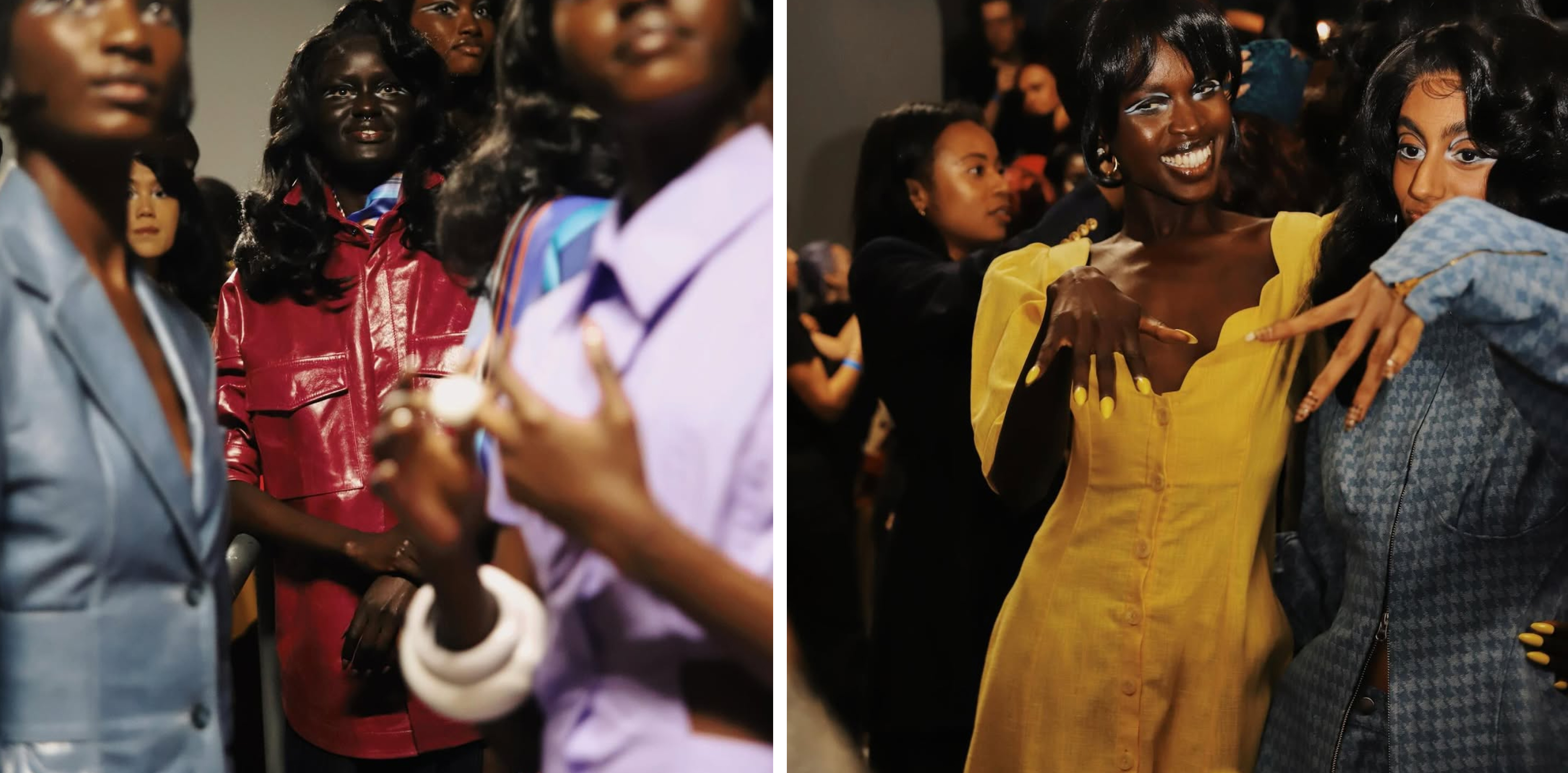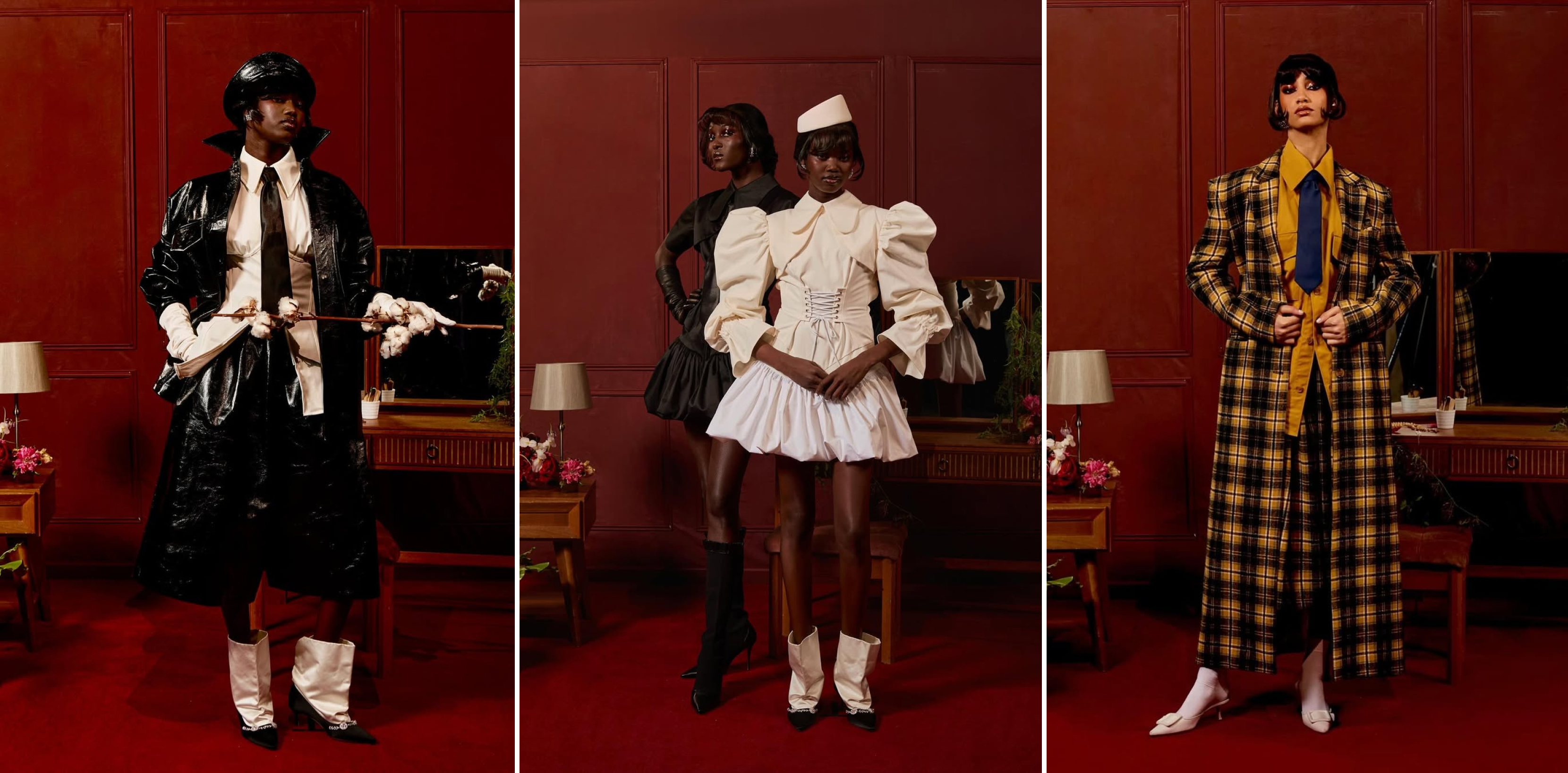
Her clothes are cultural documents, her practice a blueprint for the future. Tolu Coker isn’t just part of the conversation; she’s rewriting it.
Her clothes are cultural documents, her practice a blueprint for the future. Tolu Coker isn’t just part of the conversation; she’s rewriting it.
On the cusp of her next London Fashion Week outing, British-Nigerian designer Tolu Coker stands squarely at fashion’s most exciting intersection: heritage and high craft, community and contemporary design. Named a 2025 LVMH Prize semi-finalist earlier this year, and backed by the BFC’s prestigious NewGen program, she is emerging as one of fashion’s most vital new voices.

Coker refined her eye at Central Saint Martins and completed internships at Maison Margiela, J.W. Anderson, and Céline—formative experiences that honed her sensitivity to silhouette, technique, and story. Beyond her own studio, she has collaborated with Tate, Diesel, and Dr. Martens, building a practice that speaks to both culture and commerce. Her work has been featured in Vogue Italia, Dazed, Hunger, and AnOther, cementing her as a designer whose influence is already international.
Coker’s ascent has been doubly significant: this season, she was one of only two Black female designers on the London Fashion Week schedule; a stark reminder of how much representation still lags, even as her presence signals breakthrough change.
Coker’s work often engages with upcycling and material reclamation: acts of care that double as commentary; while translating West African philosophies into contemporary forms. Her collection “Ori (Upon Reflection)” drew on the Yoruba concept of orí (“inner head,” destiny), braiding spirituality with elegance and craft rather than treating tradition as surface print. Her Spring/Summer 2025 collection, “Olapeju,” was dedicated to her mother, mapping the migration journey of her family and reinterpreting Yoruba cultural motifs into layered craftsmanship. In Coker’s hands, heritage is not archive but living text, stitched into silhouettes, fabrics, and rituals of care.

The momentum around Coker is part of a broader shift placing Black British designers at the center of the conversation on sustainability and new luxury. Her appearance alongside Priya Ahluwalia and Torishéju Dumi for British Vogue underscored that change: these are not tokens of inclusion but architects of direction.
Her resonance is also felt in pop culture: Rihanna, Tems, Tyla and Maya Jama have all worn her pieces, proof that her language of identity and repair travels far beyond the runway and into the global zeitgeist.
Selection as a 2025 LVMH Prize semi-finalist puts Coker among a small cohort shaping where fashion goes next. The list skews toward designers who understand craft, sustainability, and community as strategy, not mood board, making her presence feel both inevitable and urgent.
Coker’s practice offers a blueprint for how diasporic designers can rewrite fashion’s grammar: treat archive as living text, spirituality as design brief, and community as production model. It’s a lens that resonates in London and Lagos alike, and one that suggests the most compelling future of “British fashion” is, in fact, plural.
As she readies her next presentation, the question isn’t whether Tolu Coker belongs in fashion’s top tier, it’s how quickly the system will adapt to the standard she’s setting: rigorous, rooted, and radiantly new.
Comments